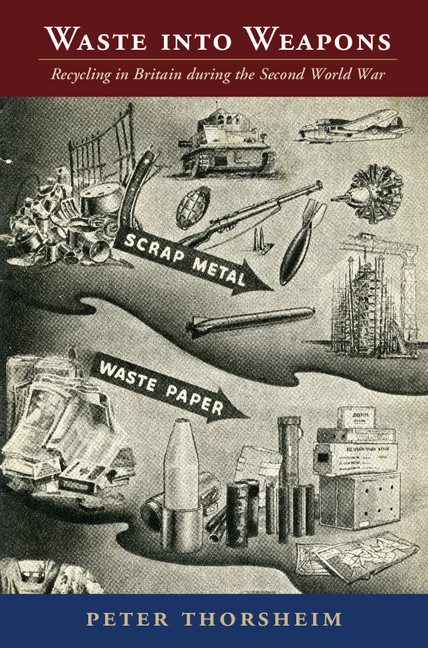Waste Into Weapons – Recycling in Britain During the Second World War

Peter Thorsheim
Thorsheim is a professor in UNC Charlotte’s History Department.
During the Second World War, the United Kingdom faced severe shortages of many essential raw materials. To keep its armaments factories running, the British government enlisted millions of people in efforts to recycle a wide range of materials for use in munitions production. Recycling not only supplied British munitions factories with much-needed raw materials – it also played a key role in the efforts of the British government to maintain the morale of its citizens, to secure billions of dollars in Lend-Lease aid from the United States, and even to uncover foreign intelligence.
However, Britain’s wartime recycling campaign came at a cost: It consumed many items that never would have been destroyed under normal circumstances, including significant parts of the nation’s cultural heritage. Based on extensive archival research, Thorsheim examines the relationship between armaments production, civil liberties, cultural preservation, and diplomacy, making Waste into Weapons the first in-depth history of 20th-Century recycling in Britain.

Peter Thorsheim, Ph.D., an expert on British history in the 19th and 20th centuries, has served as interim director of graduate studies; faculty resident director of the University study abroad program at London’s Kingston University, and a member of the American Historical Association’s Forkosch Prize committee for the best book in British history.
He has received external research funding from the National Endowment for the Humanities, the American Historical Association, and the Wellcome Trust. The author of Inventing Pollution: Coal, Smoke, and Culture in Britain since 1800 (Ohio University Press, 2006), he currently is conducting research on the environmental history of the British military-industrial complex.